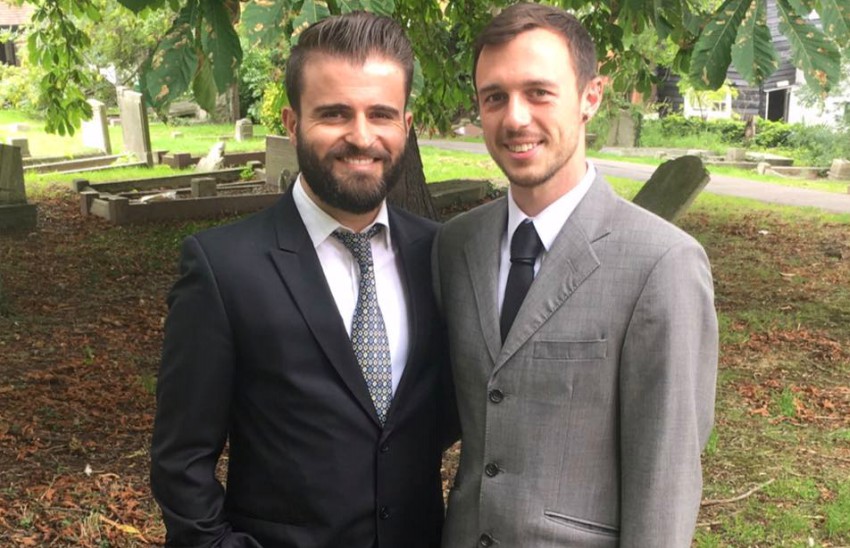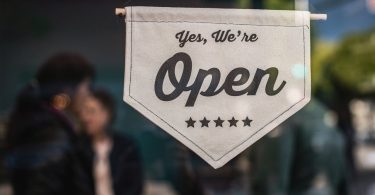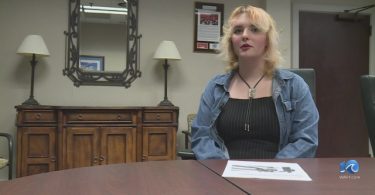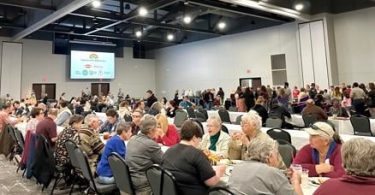Elias Jahshan and Aaron Evans are entering into a civil partnership in October. | Photo: Supplied
For Elias Jahshan, entering into a civil partnership with his partner, Aaron Evans, is a chance to show their commitment to each other.
The couple have been together for 18 months and are holding the ceremony in front of their ‘nearest and dearest’ in October.
‘It’s really exciting,’ Jahshan told Gay Star News.
‘We are having our ceremony because we love each other and want to be together. I just have this innate, inexplicable need to be with him.
‘For us it means we’re showing our commitment to each other to be together. It feels real, and it feels like the best thing to do for the both of us.’
More men get civil partnerships
Jahshan and Evans are joining the hundreds of men entering into civil partnerships in England and Wales every year.
Newly released numbers show same-sex couples still prefer to solemnise their relationship with a civil partnership rather than marriage.
Two-thirds of civil partnerships are between male couples according to new data released by the Office for National Statistics (ONS).
The ONS released the annual statistics to show ‘how the popularity of civil partnership formations has changed since the introduction of marriages for same-sex couples’.
There were 908 civil partnerships in England and Wales last year, a 2% increase on 2016 figures. Even though the increase was small, it was the second annual increase since same-sex marriages was announced in 2013.
‘Despite the introduction of marriages for same-sex couples in March 2014, the number of same-sex couples choosing to form civil partnerships has increased slightly for the second consecutive year,’ said Nicola Haines, Vital Statistics Outputs Branch, ONS.
Even though men represent two-thirds of all civil partnerships, the 2% increase came thanks to women. The number of women having civil partnerships jumped 8% between 2016 and 2017.
People over the age of 50 were more likely to enter into a civil partnership, with 37% of all formations happening in London.
Unhappy endings
The ONS also released some sadder statistics which showed 1,217 couples dissolved their civil partnerships in 2017. Those dissolutions happened mainly among female couples, with 57% of female couples successfully applying for a civil partnership dissolution.
This is the first time the ONS has published data on civil partnership since June’s historic Supreme Court ruling. The Court ruled that civil partnerships should be available to heterosexual couples.
The ONS said the government would take the new statistics into consideration it decides the future of civil partnerships.
Keep civil partnerships
Relate, one of the UK’s leading relationship charities, said much more research was needed on why people prefer civil partnerships. It said that research needed to happen before the government decides whether to open civil partnerships to all couples. But the government has hinted it may also phase them out altogether.
‘It’s likely that many are drawn to civil partnerships because they associate marriage with patriarchy but still want legal rights, financial protection, and to recognise their commitment to each other,’ said Relate’s director of policy, Huw Thoams.
‘At Relate we believe everyone should have the choice to recognise their relationship in a way that works for them so given the clear demand, extending the right to register a civil partnership to everyone, rather than abolishing them altogether surely makes more sense.’
But for Jahshan the chance to express his love and commitment to his partner is something he can’t wait for.
‘At the end of the day Aaron and I just love each other and everything is really easy and amazing when I’m with him. Taking this next step feels so right for both of us,’ he said.







